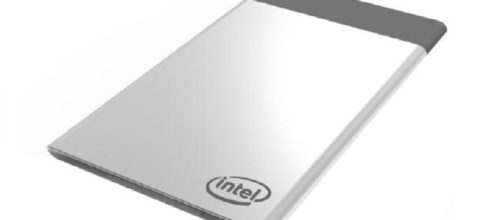One of the overarching trends in the march of evolving technology into the future is that the stronger the device is, the smaller it should get. This could be seen easily in the change from the bulky cellular phones of decades past and the flat mini-computer-like smartphones of this generation.
Intel, one of the leading names in pushing the envelope where computer hardware is concerned, has had its own hand in this progress. They haven’t stopped either, with very recent releases in new Xeon processors just over a month ago and Core X-series chips at the end of May.
Now they’re set to launch their latest contribution to computer miniaturization: the credit card-sized Compute Card.
A PC in your pocket
The new Compute Card, first announced earlier this year, was finally debuted by Intel at the Computex IT trade show in Taipei this week starting May 30. And it is an absolute beauty when it comes to making computers small.
Just like its product name says, the Compute Card is roughly as wide as a credit card, slightly longer, and thick as a USB Backup Battery. But in this compact shell is contained a formidable smorgasbord of processor options.
Across its four available variants, the Intel Compute Card can contain one of a Celeron, Pentium, or Core i3/i5 microprocessor, SSD or eMMC storage (128GB max), and Wireless-AC.
Also included are Bluetooth 4.2 and 4GB DDR3 memory.
Intel hopes that their new Compute Card hardware can then be picked up and adapted by their various OEM partners for their respective devices. With the complete package of processing, memory and storage capabilities, only imagination is the limit as to what electronics companies can do with the modular Compute Card in their systems.
Partner applications
During Computex, Intel has also released a list of their OEM partners that will make use of the Compute Card in their upcoming computer products. Among these Intel-using manufacturers is Sharp, which plans to apply for the card on their digital signage tech. LG is taking the bold step of integrating the Compute Card into their PC monitors, creating a PC-TV of sorts.
Seneca and Foxconn meanwhile are looking at mini-PC packages.
Remarkably, none of Intel’s major brand partners like HP, Dell, and Lenovo have made any announcements as to how any of their next devices might make use of the Compute Card. Intel, however, is confident that these companies have some cool ideas for their innovation. The Intel Compute Card will start shipping this coming August.


